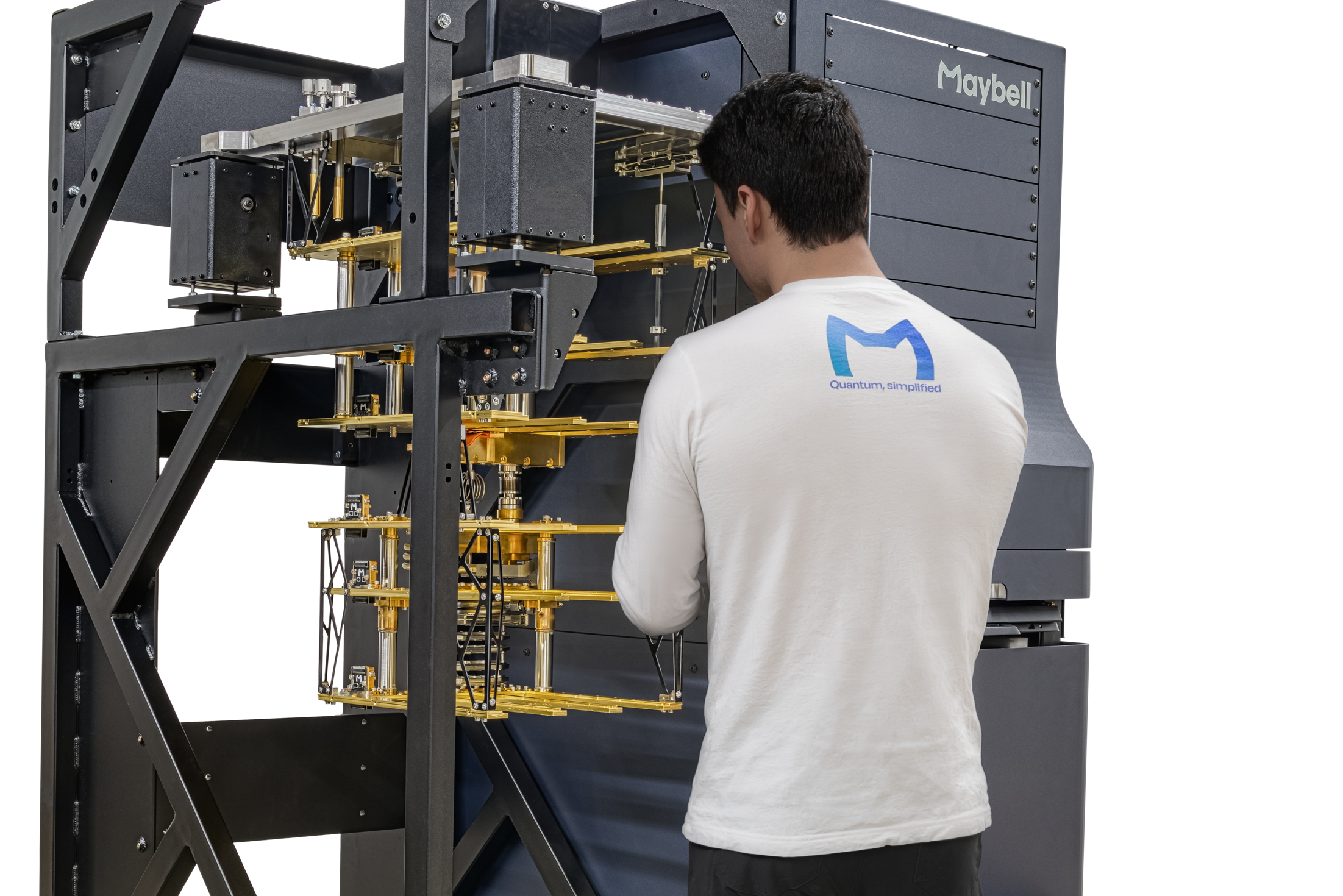
The U.S. government recently designated Colorado a regional tech hub for the quantum industry. That puts the state in line to receive a federal grant as part of the CHIPS and Science Act, which aims to boost investment in emerging technologies.
CPR business reporter spoke with Colorado Matters senior host Ryan Warner about what quantum actually means, and how the technology could shape our future.
This transcript has been lightly edited for clarity.
Ryan Warner: A quantum tech hub sounds cool and futuristic, but what does “quantum” entail?
Sarah Mulholland: I mean, when you hear the word quantum, you might think of quantum physics or quantum mechanics. That’s what popped into my head. But I quickly realized I couldn’t explain what those terms meant, let alone how they applied to emerging technology.
And what did you figure out?
Mulholland: Well, you can go down a lot of rabbit holes when you start googling “what is quantum.” To boil it down, quantum physics, or quantum mechanics, is a set of principles that govern the behavior of the very smallest things in the universe – like atoms or even just pieces of atoms – things we can’t see or touch per se. These principles are very different from what’s called classical mechanics, which pertains to things that are easily observed, like the arc of a basketball or what happens when you drop something on the floor.
And then there’s this idea that blows my mind. When you’re talking quantum, units of matter or energy don’t exist in an either or state. We’re accustomed to seeing the world in terms of up or down, on or off, here or there, in the case of computer code, ones, and zeros, but quantum theory says that a particle exists in a state of limbo until something happens to change that.
Lincoln Carr is a physics professor at Colorado School of Mines.
Carr: The most important idea in quantum is that everything is non-binary. The building blocks of our bodies, the electrons, protons, and neutrons that make up matter, that make up the atoms, that make up the molecules, that make up our bodies, all of those objects are non-binary. So this concept that binary thinking is somehow fundamental, that things are true or false and not in between. I mean, it's just not the case.
That opens up a whole different dimension.
Mulholland: It’s pretty wild to think about. To be clear, quantum theory is not a new thing. These principles were discovered more than 100 years ago. And even though it sounds like science fiction, it turns out, principles of quantum mechanics are already at play in a lot of things we all take for granted. It enhances things like GPS and MRI machines.
I understand people in the quantum field like to frame what's happening now as “Quantum 2.0" or the second quantum revolution. What does that mean? What does 2.0 do?
Mulholland: Frankly, it doesn’t do a whole lot, yet. There are some real-world applications, particularly for quantum sensors. For instance, there’s a company in Boulder called Longpath and they make sensors to monitor emissions.
But what’s getting a lot of buzz lately is computing. Quantum computers would be exponentially faster and more powerful than today’s, capable of doing things that we can’t even imagine doing with computers. But the thing is, nobody has figured out how to make a quantum computer that truly works.
Carr – the Mines professor – says the approach people are using for quantum computing today might not end up being the best way to do it. The first truly functional quantum computers might look totally different from what people are working on now!
Carr: Quantum computing is very speculative. We could be focusing on the wrong tree in a very big forest right now. Imagine if you weren't sure if your car was going to have eight wheels, four, maybe it was going to have wings, maybe it would crawl like a snake. You really weren't really sure what it was going to do. You knew it was going to go somewhere, but you weren't really sure. If you look at the early history of vehicles, people built all kinds of crazy things.”
As we said, Colorado could get a lot of money from the federal government through this quantum tech hub designation. I assume that’s because this state is somehow uniquely positioned for quantum research?
Mulholland: Yes, there are quite a few companies and schools here that are pretty heavily involved.
So is that federal money going toward a big experiment?
Mulholland: Not exactly. Like I said, you’ve got quantum sensing which is doing things in the real world. The money would also go toward educating the quantum workforce of the future. But when it comes to quantum computing, yeah, the technology still has a ways to go, like I said, and some of the federal grant money would go toward companies in Colorado that are figuring things out.
There are companies building quantum computers today, but they’re really like test runs, machines that researchers can play around with, but can’t run the kinds of equations we want quantum to do. IBM, Google, all the big names in technology are doing this.
Did you find any companies in Colorado making quantum computers? Or at least, attempting to?
Mulholland: Yes. I spoke with Corban Tillemann-Dick. He’s the CEO of Maybell Quantum in Denver. I couldn’t get to the lab in person, but he walked me through what they’re building there. He played me a clip of something called a dilution refrigerator.
It’s very cold inside. It’s 10 millikelvin, which is negative 441 degrees. Tillemann-Dick can explain it better than I can.
Tillemann-Dick: It's about two orders of magnitude colder than deep space. If the speed of light is the fastest you can go, then absolute zero is the coldest you can get. It's where all motion ceases. At 10 millikelvin you're a few thousandths of a degree above absolute zero. When that system is running, it's the coldest place in the known universe.
Wow. Why so cold?
Mulholland: Bear with me. Things can get a little confusing here. In a nutshell, that special refrigerator Maybell is making, cools down the processor. It has to be that cold so that the quantum bits, qubits, as they are called – which are like the bits we are using on our computers right now to store information, but for quantum – It has to be that cold so the qubits aren’t disturbed. You know how Tillemann-Dick said that at absolute zero all motion ceases?
Yeah.
Mulholland: In order for the qubits to do their thing, they have to maintain their relationship to one another. This is something called entanglement. It gets way more complicated than that. But suffice it to say, you don’t want those qubits interacting with other things and getting disentangled. That’s why it has to be so cold. To keep everything as still and quiet as possible for the qubits. So far, nobody has figured out how to keep enough of those qubits entangled for long enough to do useful calculations.
This is fascinating! Say somebody figures out how to build a functional quantum computer, what kinds of things will it be able to do?
Mulholland: The answers to that question are all over the map. Quantum computers could be used to create new materials, they could be used to discover new medicines, they could be used for financial modeling. After a few conversations with folks working on quantum computing, the question I had was – well, what can’t a quantum computer do – eventually. But all that is still years away. Right now, quantum computing applications are all theoretical.
And now Colorado’s a regional hub – to help apply it to the real world.
Mulholland: Indeed.









